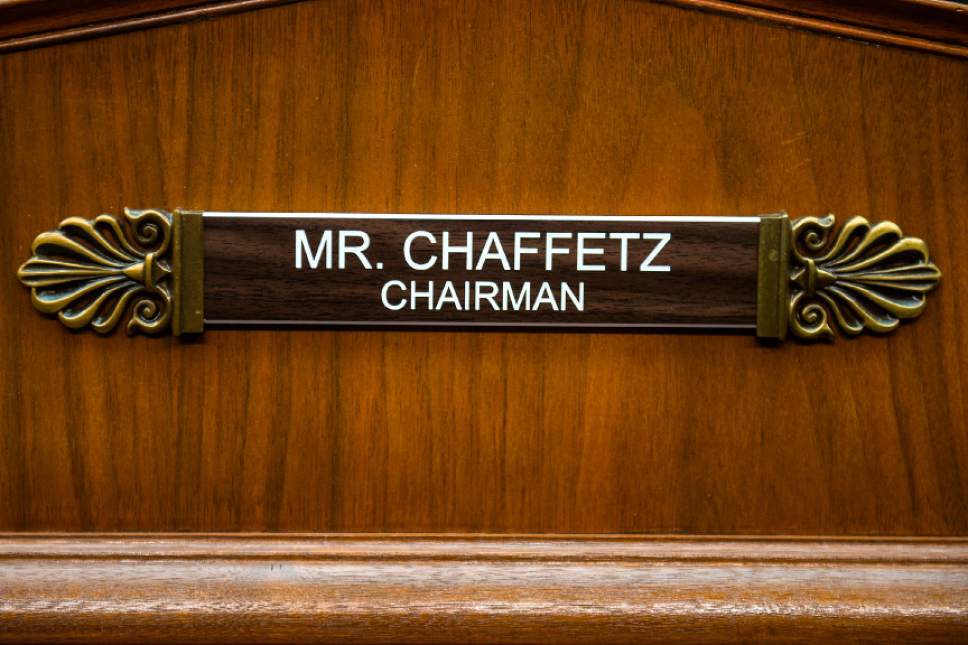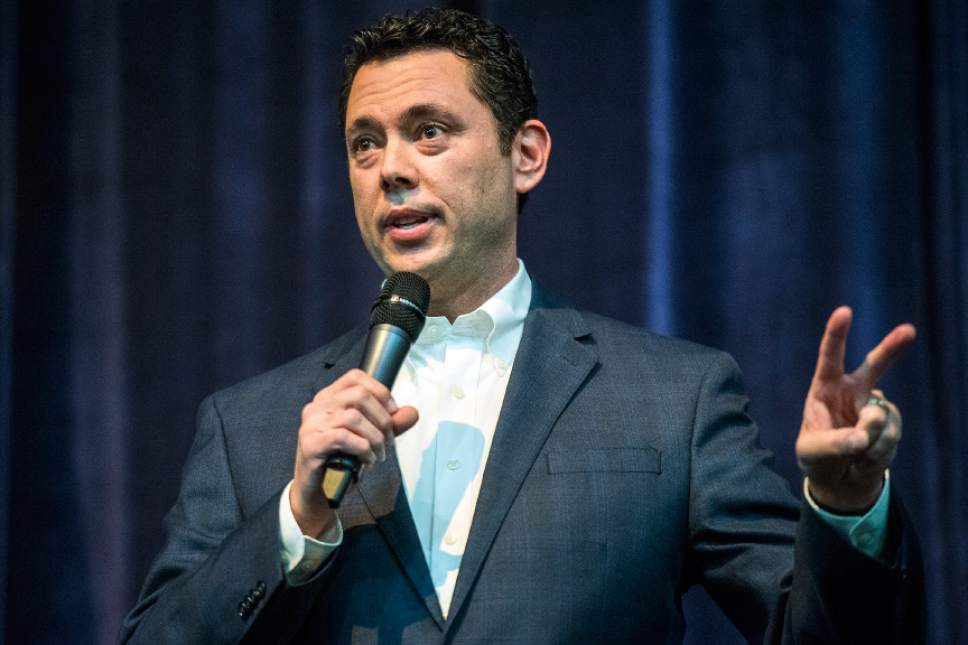This is an archived article that was published on sltrib.com in 2017, and information in the article may be outdated. It is provided only for personal research purposes and may not be reprinted.
Washington • Rep. Jason Chaffetz won't be in office come July, but his office still will be working.
The Utah Republican's departure at the end of June means that the House Clerk's Office will oversee Utah's 3rd Congressional District's offices in Utah and Washington.
Want a flag flown over the U.S. Capitol? You can still get one from the office. Looking for a tour of the U.S. Capitol? You just have to ask. Have a problem with a federal agency? Staffers will be there to help.
As with any vacancy in the House, the Clerk's Office will run the basic operations of the congressional office until a replacement is elected, in Utah's case, on Nov. 7, and sworn in.
Without a sitting representative, there will be no new legislation pushed, no public positions on issues or political action taken.
"Most of our staff will no longer be there," Chaffetz explained, "but there will be somebody who can turn on the lights, answer the phone and do what they can in a limited way."
While the Clerk's Office can keep everyone currently on the office's payroll, many Chaffetz's staffers are already looking for new gigs. Whoever is elected to the seat can bring in a whole new staff when taking office.
Vacancies occur often in the House — sometimes by resignations, sometimes by death — and, because the body is supposed to represent the people, they can be filled only by elections. Senate seats, meanwhile, can be filled by appointments by a state's legislature or governor.
There are four currently vacant House seats, not counting Chaffetz's.
Doug Heye, the former deputy chief of staff to then-House Majority Leader Eric Cantor and a one-time spokesman for the Republican National Committee, says that no matter who occupies an office, or in this case doesn't occupy one, the "important work the office does in representing and protecting its constituents goes on, even in an absence."
"When a member leaves the office, the important work of constituent service — tracking down missing Social Security checks, fighting for a veteran getting the short end of the stick from the VA, updating constituents on the status of important legislation and helping arrange visits to the Capitol, etc., continues," Heye says. "Their needs don't begin and end with a particular member of Congress."
Once Utah holds a general election to fill Chaffetz's seat, the new member is expected to be sworn in quickly in Washington and take over the duties of the office.





